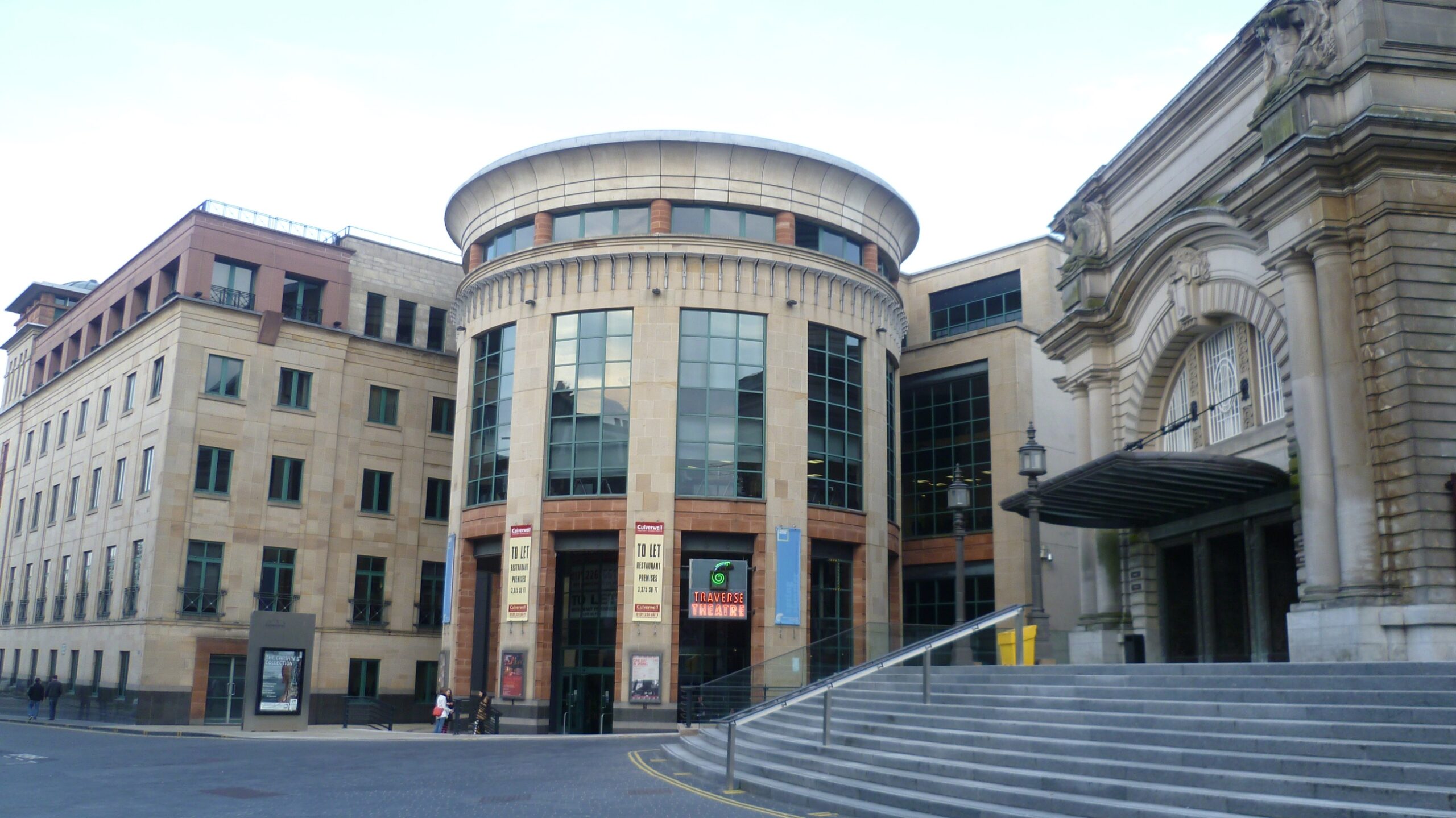
Traverse Theatre, Edinburgh
Photo: Kim Traynor
Scotland faces slow return to pre-Covid audiences
A recent Creative Scotland survey suggests audiences are unlikely to return to pre-Covid levels until the population has been vaccinated.
Scotland's arts and cultural sector faces a slow and drawn-out recovery from the pandemic, a recent audience survey for Creative Scotland reveals.
Most of the 1101 individuals surveyed in November said they were either in “no hurry” or “not planning to visit cinemas, art galleries, live music events or theatres”.
According to the report, more than 56% have “really missed” the opportunity to attend cultural events, but safety concerns remain an obstacle to attendance.
READ MORE:
Any return to pre-Covid levels is not expected until either the full vaccine roll out is complete or the virus has been eradicated.
At that point, 52% said they hope to attend as often as before the pandemic, while 23% said they would attend more often.
Creative Scotland Chief Executive Iain Munro said the findings would help to understand the impact of Covid-19 “from a public perspective” and inform discussions with the Scottish Government and other partners.
“The research also provides invaluable insight that will help shape our collaborative work with the sector in terms of recovery and renewal as we emerge from the impacts of the pandemic through 2021.”
Online on the wane
The report suggests that for most people, online cultural programming is not seen as an attractive alternative to in-person events.
While in a similar survey from July, one third of respondents had taken part in "substitute" online cultural activities, the figure for the second survey was just 20%.
Although the levels of online engagement remain higher than before the March lockdown, just 10% said they would definitely be interested in an online alternative if they were not able visit a venue.
A third said they would “possibly” be interested, with levels of interest highest among women, younger age groups, Black and ethnic minority respondents, and parents.
Only 17% said they would be willing to pay for online programming.
Outside options
Outdoor events were seen as the most viable alternative while venue-based activity remains problematic.
70% said they would be interested in attending one or more of the outdoor events suggested. These included drive-in cinema (40% would attend), outdoor gigs and concerts (35%), open-air theatre (28%) and outdoor art and sculpture (24%).
Asked about returning to cultural activity in the future, a visit to the cinema topped the list, with 48% saying it was what they were most looking forward to.
Live music (37%) was the next most popular, followed by theatre (34%) and art galleries and exhibitions (23%).
About a third of those surveyed said they were willing to support events and venues financially through paying a higher ticket price or making a donation.
Donating to a recovery fund when buying tickets was the most popular option, with 39% interested.
A further survey is planned for the spring.
Join the Discussion
You must be logged in to post a comment.